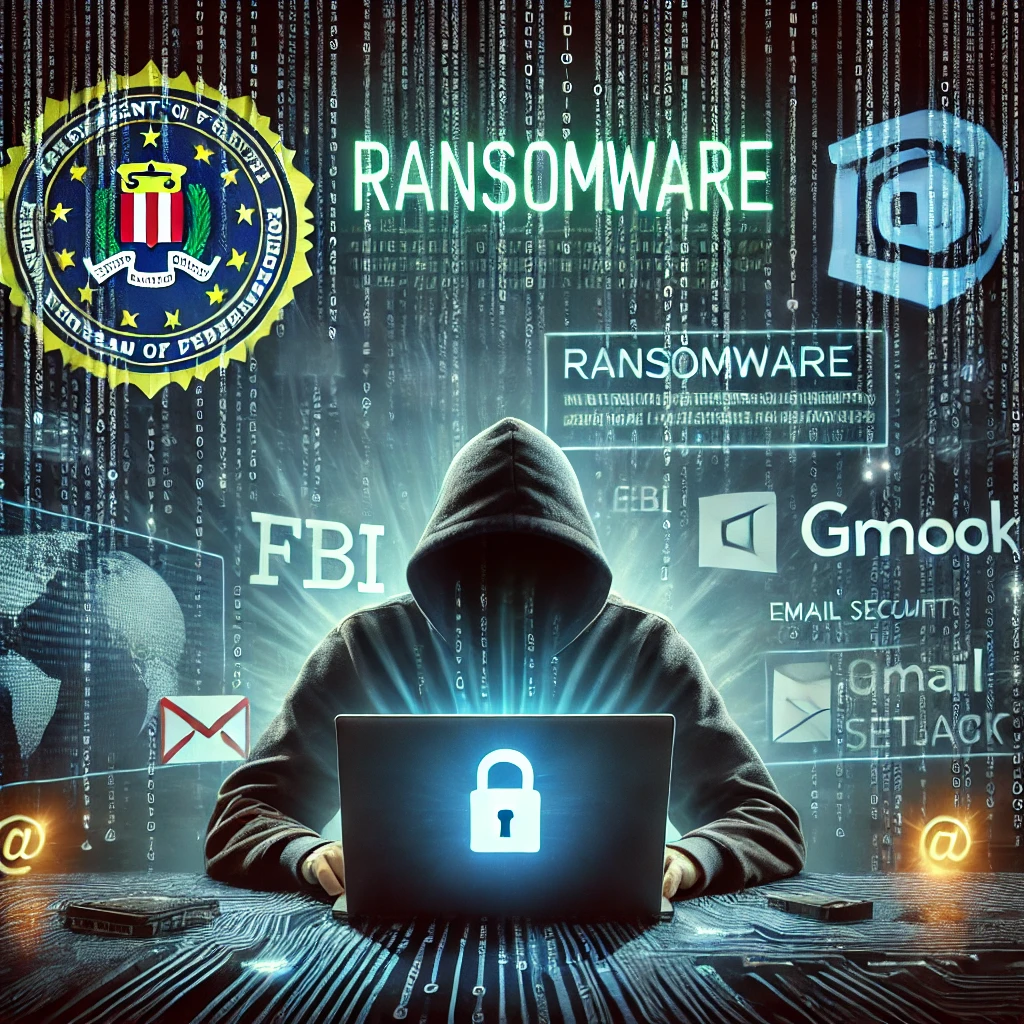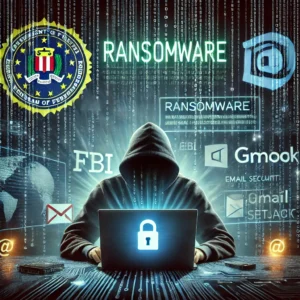
“FBI Warns Gmail and Outlook Users: Ransomware Attacks on the Rise—Stay Alert!”

In a recent and urgent announcement, the Federal Bureau of Investigation (FBI) has issued a stark warning to users of popular email services like Gmail and Outlook. The alert comes in response to a sharp rise in sophisticated ransomware attacks targeting individuals, businesses, and organizations. These attacks, which have grown in both frequency and complexity, pose a serious threat to personal data, financial security, and organizational operations.
The Growing Threat of Ransomware
Ransomware is a type of malicious software designed to lock users out of their systems or encrypt their files until a ransom is paid. Over the past few years, ransomware attacks have become alarmingly common, targeting everyone from small businesses to large corporations, government agencies, and even individual users. The FBI’s latest warning highlights a new wave of attacks that specifically exploit vulnerabilities in widely used email platforms like Gmail and Outlook.
According to the FBI, these attacks often start with a phishing email—a deceptive message designed to trick recipients into revealing sensitive information or downloading malicious software. Once the ransomware is installed, it encrypts the victim’s files, making them inaccessible. The attackers then demand payment, usually in cryptocurrency, in exchange for the decryption key.
How the Attacks Unfold
The FBI has identified several common tactics used by cybercriminals in these ransomware attacks:
Phishing Emails: Attackers send emails that appear to come from trusted sources, such as banks, government agencies, or well-known companies. These emails often contain urgent messages designed to pressure recipients into clicking on a link or downloading an attachment.
Malicious Attachments: The emails may include attachments disguised as invoices, receipts, or other seemingly harmless documents. Once opened, these attachments install ransomware on the victim’s device.
Fake Login Pages: Some phishing emails direct users to fake login pages that mimic legitimate websites. When users enter their credentials, attackers capture their usernames and passwords, gaining access to their email accounts and other sensitive information.
Exploiting Software Vulnerabilities: In some cases, attackers exploit known vulnerabilities in email clients or operating systems to infiltrate a victim’s device and install ransomware.
The Impact on Gmail and Outlook Users
Gmail and Outlook are two of the most widely used email services globally, with billions of users between them. This massive user base makes them prime targets for cybercriminals. The FBI’s warning underscores that no one is immune—individuals, small businesses, and large enterprises are all at risk.
For individual users, falling victim to a ransomware attack can mean losing access to personal photos, documents, and other important files. In some cases, attackers may also steal sensitive information like Social Security numbers or bank account details, leading to identity theft and financial losses.
For businesses, the consequences can be even more devastating. A ransomware attack can disrupt operations, result in the loss of critical data, and lead to significant financial damage. Some businesses may feel compelled to pay the ransom to regain access to their data, though there’s no guarantee the attackers will provide the decryption key even after payment.
The FBI’s Recommendations
To help users protect themselves, the FBI has shared a series of practical recommendations:
Be Cautious with Emails: Treat unsolicited emails with suspicion, especially those containing urgent requests or unexpected attachments. Always verify the sender’s identity before clicking on links or downloading files.
Enable Two-Factor Authentication (2FA): Adding an extra layer of security to your email accounts can help prevent unauthorized access, even if your password is compromised.
Keep Software Updated: Regularly update your email clients, operating systems, and other software to patch known vulnerabilities that attackers might exploit.
Back Up Data Regularly: Regularly backing up important files to an external drive or cloud storage can help you recover your data if it’s encrypted by ransomware.
Use Antivirus Software: Install and regularly update antivirus software to detect and block ransomware before it can infect your device.
Report Suspicious Activity: If you encounter suspicious emails or fall victim to a ransomware attack, report it to your local FBI field office or the Internet Crime Complaint Center (IC3). Your report can help law enforcement track and disrupt cybercriminal activities.
The Bigger Picture
The FBI’s warning comes at a time when ransomware attacks are becoming more sophisticated and damaging. According to a recent report by cybersecurity firm SonicWall, there were over 304 million ransomware attacks worldwide in 2020—a 62% increase from the previous year. The financial impact is equally staggering, with the average ransom demand skyrocketing from
5,000in2018toover
5,000in2018toover200,000 in 2020.
The rise in ransomware attacks has sparked calls for greater international cooperation to combat cybercrime. In June 2021, the G7 nations issued a statement condemning ransomware attacks and urging a coordinated response to dismantle the criminal networks behind them. The statement also emphasized the importance of strengthening cybersecurity defenses and holding perpetrators accountable.
Staying Vigilant in a Digital World
The FBI’s warning to Gmail and Outlook users is a timely reminder of the ever-present threat of cybercrime. As cybercriminals continue to refine their tactics, it’s crucial for individuals and businesses to take proactive steps to safeguard their data and systems.
By following the FBI’s recommendations—such as being cautious with emails, enabling two-factor authentication, and regularly backing up data—users can significantly reduce their risk of falling victim to a ransomware attack. Additionally, reporting suspicious activity to law enforcement can help disrupt cybercriminal networks and prevent future attacks.
In today’s increasingly digital world, cybersecurity is a shared responsibility. Staying informed, vigilant, and prepared is the best defense against the growing threat of ransomware and other forms of cybercrime.
